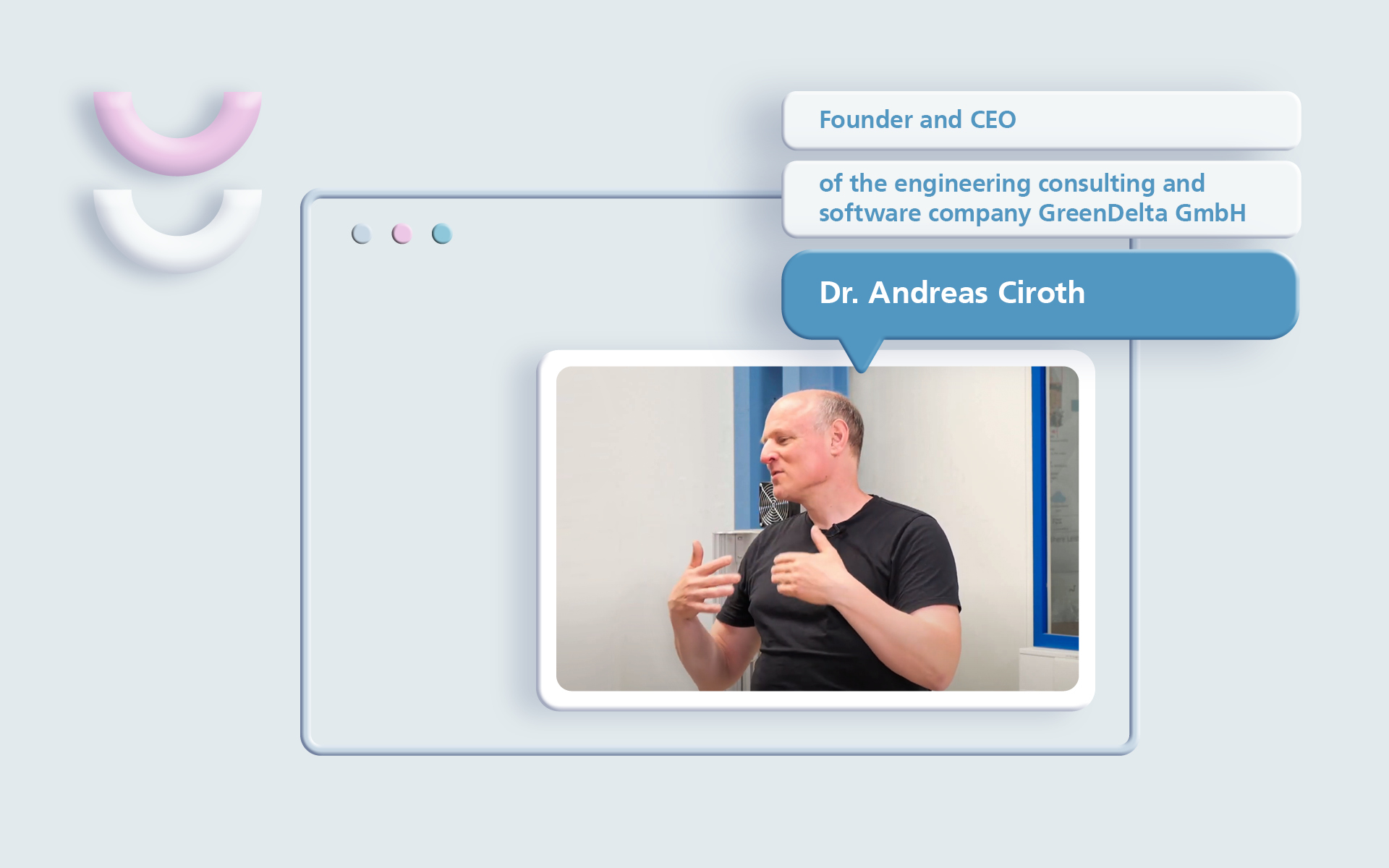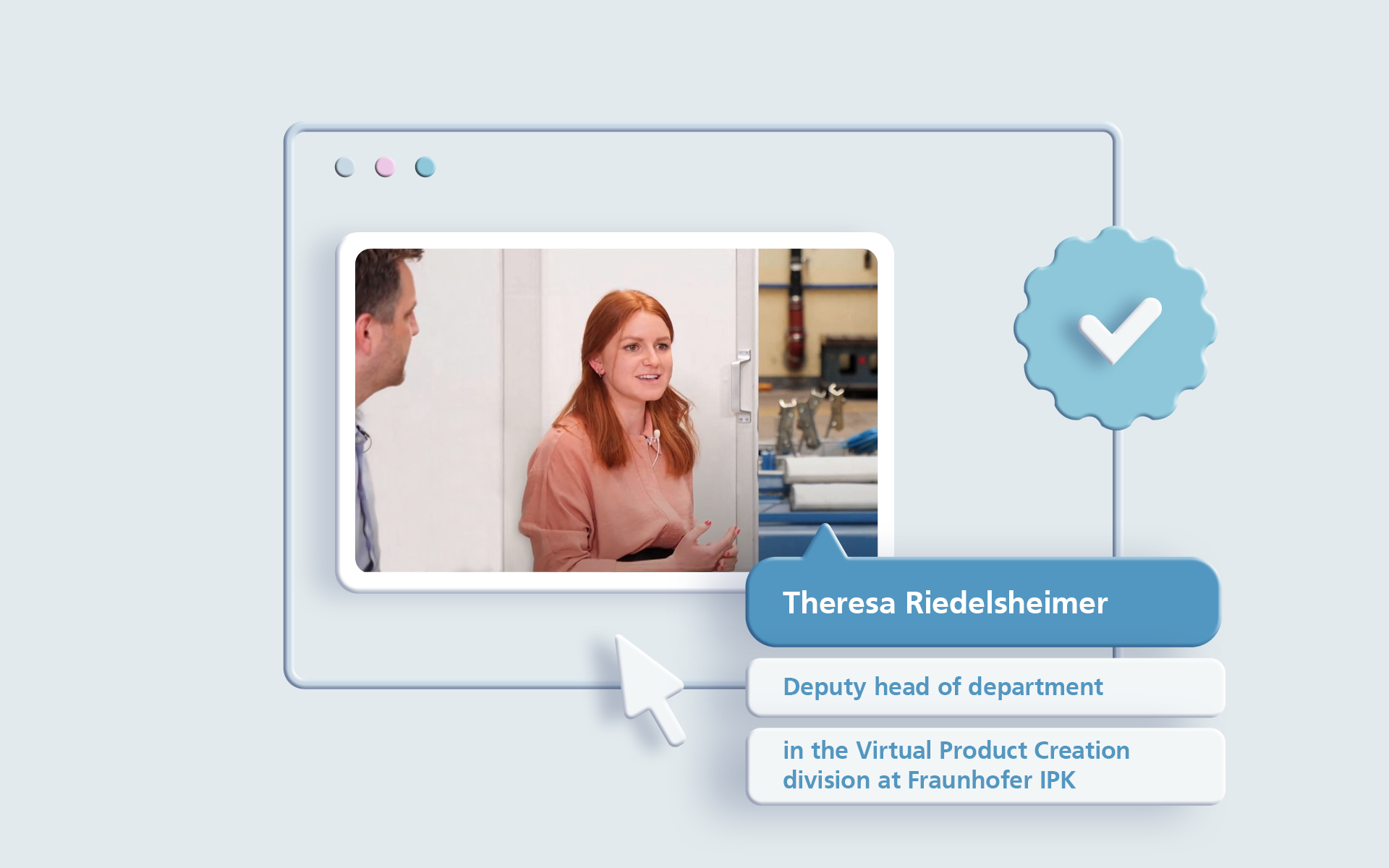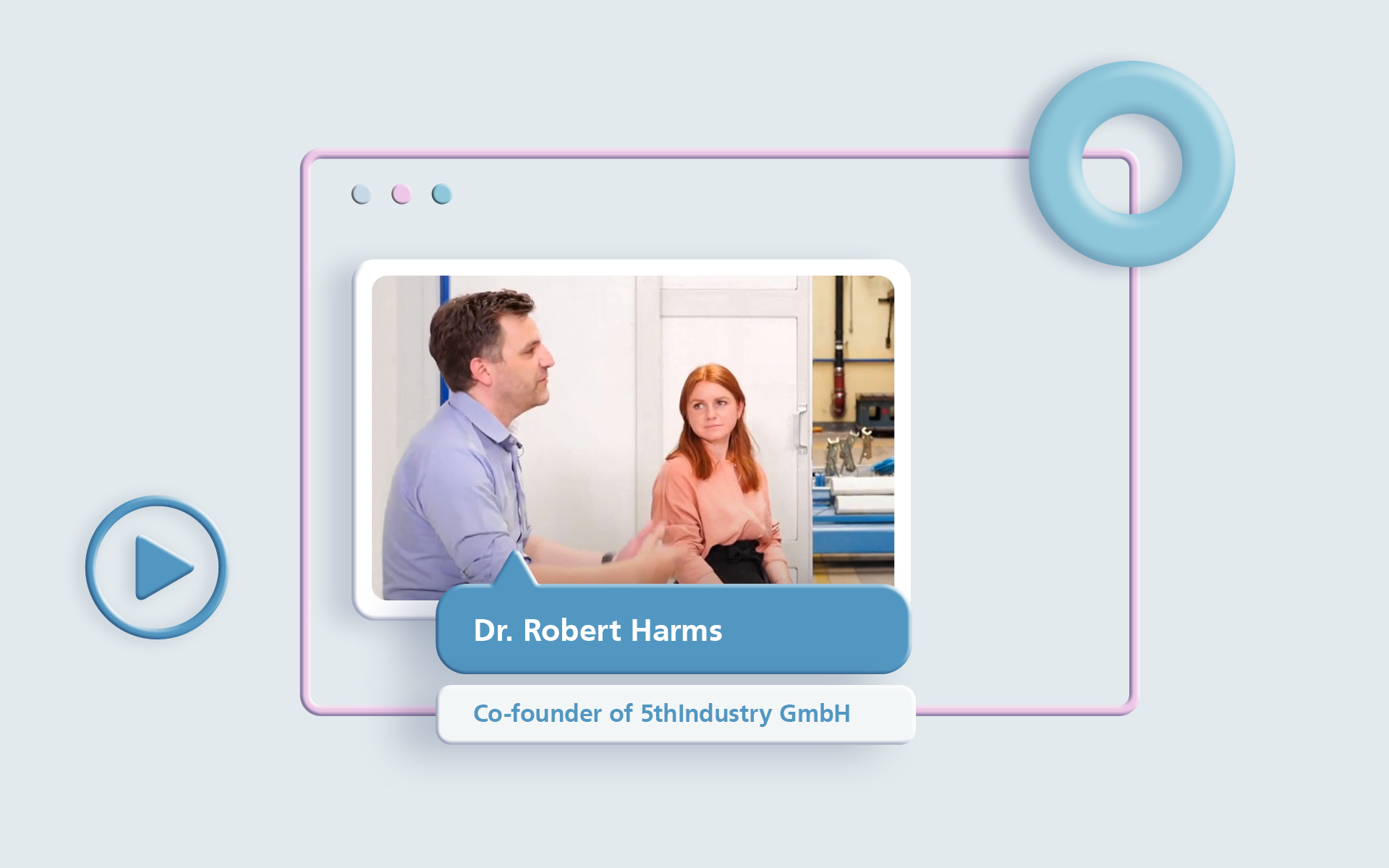Industry Imitates Nature
futur: Dr. Ciroth, how do you measure sustainability in production?
Ciroth:
In this project, we are using a method called life cycle assessment, or LCA. This is a reference method that is accepted worldwide for recording the environmental impact of products over their life cycle, i.e. from resource extraction and production through the use phase all the way to disposal or recycling. Data is collected everywhere to neutrally and objectively assess various environmental impacts of the individual phases. The »BioFusion 4.0« project is very interesting for us because biotransformation is a colorful bouquet of different methods and measures for the individual phases. The task at hand is to look at which of these are actually better for the environment, for example, by leading to fewer greenhouse gas emissions.
futur: You are raising the question of whether biological transformation is good for the environment per se. Ms. Riedelsheimer, at Fraunhofer IPK you and your team are researching the transfer from science to industry, what can you tell us about this very relevant question?
Riedelsheimer:
There is a great deal of preliminary theoretical work and many research results in the area of sustainability assessment. But there are also numerous aspects that we cannot clarify on our own in terms of research. That is why a project like »BioFusion 4.0« is so important. We need the user side with problems and requirements that stem directly from industrial production to show how complex biological principles can be transferred in such a way that they really bear fruit. There are still many unanswered research questions here, including the environmental impact. Because, as Mr. Ciroth has already hinted at, biological principles are not sustainable per se. At Fraunhofer IPK, we are therefore researching how production engineering technologies can be combined with natural principles and with sustainability aspects. For example, we are looking at human-robot collaboration, 3D printing of biogenic polymers, but also digital solutions such as digital twins. Here in particular, the question arises: What exactly are the changes that come about as a result of biological transformation, when products and processes but also operating principles change? And what concrete potentials arise in their application? This is also something we cannot answer from research alone.
»If you compare traditional organizational management to an orchestra with a conductor, today we have to think more in terms of free jazz.«
– Dr. Robert Harms
futur: Speaking of operating principles: Within the consortium, these are the expertise of 5th Industry’s Dr. Harms. What can we learn from biological principles in terms of organizational management?
Harms:
If you compare traditional organizational management to an orchestra with a conductor, today we have to think more in terms of free jazz. We build the stage on which the band can play. This system of high degrees of freedom resembles a »natural« ecological situation – which explains why biological principles such as emergence, self-organization and evolution are important for successful management today. What can IT and organizational infrastructures look like, and how do they fit together? Do you need this or that value creation process, this or that business model today? Companies need to be able to change and adapt quickly. You also need some structures that help you coordinate and work with other, sometimes unknown, players. Like with free jazz: How do I communicate that it's your turn to get involved? Bringing all this together organizationally and IT-wise is our field of research.
futur: The »BioFusion 4.0« project also seems to fit very well into the era of Fridays For Future and the like. Nevertheless, many people are still unfamiliar with the term »biological transformation«. How do you intend to publicize the concept?
Riedelsheimer:
We emphasize that our work is based on the principle of harmony with nature. We all know that we are already very late in prioritizing nature, i.e. our planet, and protecting it. This line of argumentation is a way to get a lot of people to take interest in the topic. We're not starting from scratch; society is definitely open to the issue. Especially if we prove in practice that our solutions are not just innovative, but also sustainable.

Privacy warning
With the click on the play button an external video from www.youtube.com is loaded and started. Your data is possible transferred and stored to third party. Do not start the video if you disagree. Find more about the youtube privacy statement under the following link: https://policies.google.com/privacyWatch the recording of our kick-off event on June 10, 2021 here [German only]! You will get all the basic info on the project, interesting technical presentations and a stimulating panel discussion on the biological transformation.
futur: Climate protection has also reached the top of the political agenda, as witnessed by the fact that it is under the responsibility of the Ministry of Economics under the current German government. What role do economic and political considerations play for »BioFusion 4.0«?
Riedelsheimer:
Of course, regulations and laws are an important factor. We can't solve all problems technologically; that's a task for society as a whole. Laws are important drivers here, the Supply Chain Act, for example. Of course, something like this promotes investment in socially responsible solutions and environmentally friendly technologies and companies.
Ciroth:
The European Commission's Green Deal has made a huge difference in this area. Today, every renowned company invests in climate protection, regardless of economic considerations. In this respect, politics can really make a big difference
futur: Let's look to the future. Where do you see yourself in three years? Because that is the planned duration of the research project.
Ciroth:
For us, one interesting outcome of the project is a classification and pattern detection in sustainability models. The difficulty in communication on biological transformation is that the possible measures are so varied and, at first glance, disorganized. By applying pattern recognition to LCA, we hope that we can then structure the different biotransformation principles. Working not with 75 individual examples, but rather with three or four on each of the basic principles – that would really be helpful in terms of communicating project outcomes.
Harms:
We are looking at a future where we can tell the whole story of biological transformation. Not just through the individual aspects of applications, people, organization and infrastructure, but in a wholistic overall context: how will the transformation work from today’s machine age as we know it to the biological age? Of course it's nice to have recyclable packaging material. And of course it's nice to have lean IT infrastructure. But what does that mean in terms of eco-balance? If we can tell that as an inspiring story, we will have fulfilled our goal.
 Fraunhofer Institute for Production Systems and Design Technology
Fraunhofer Institute for Production Systems and Design Technology


